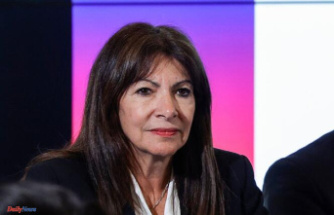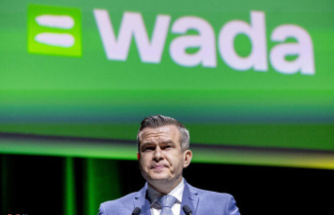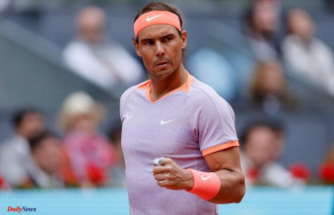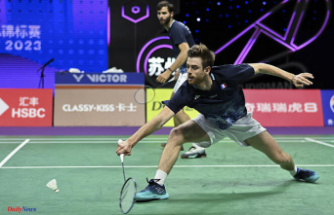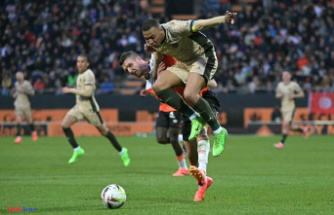The German national soccer team misses the chances at the front, but involuntarily invites them to score goals at the back. The defeat in the opening game of the World Cup raises many questions that national coach Hansi Flick now has to answer. Especially since it's a bankruptcy that hasn't happened in 44 years.
What happened at Khalifa International Stadium?
In the stadium of shame, the German national team produces their very own 2022 version of the shame of Córdoba. Less because the circumstances of this 1:2 defeat against Japan are reminiscent of the legendary 2:3 against Austria at the 1978 World Cup in Argentina, which gave Hans Krankl and radio reporter Edi Finger eternal fame. But much more because the DFB-Elf lost a World Cup game in Qatar for the first time in 44 years, although they went into half-time with a lead. İlkay Gündoğan explained shortly after the final whistle that Takuma Asano's Japanese winner was perhaps the easiest goal ever scored in a world tournament. In the 83rd minute, it's a single long ball that throws the German defense into chaos - and after the 2018 World Cup and the 2021 European Championship, it causes the third defeat at the start of a major tournament.
It was "difficult to win the game with this lack of efficiency in front and behind," says Thomas Müller in a first reaction after the end of the game on the ARD microphone. That sounds like a lot of work for national coach Hansi Flick, who now has to answer the many questions that these 90 minutes raised before the kick-off against Spain (Sunday, 8 p.m. / ARD, MagentaTV and in the live ticker on ntv.de). Defensively, the DFB-Elf faltered for the first time in the 8th minute when Daizen Maeda scored from a narrow offside position and thus denied a strong Japanese counterattack the reward.
After that, the team of national coach Hansi Flick dominated the game for long stretches, but the scoreboard didn’t do more than Gündoğan’s converted penalty in the 33rd minute. Instead, the offensive department around the strong Jamal Musiala, the eager Serge Gnabry and the timely ready Thomas Müller missed one promising opportunity after the other. In the second half, Japan changes tactics and determines the game, especially from the 60th minute. Substitute Takumi Minamino forces Manuel Neuer to defend in the 76th minute, Ritsu Doan stands there - and the professional from SC Freiburg scores to equalize. Seven minutes later it is Ko Itakura, employed by FC Schalke, whose through ball Schlotterbeck
And so, as in the two previous tournaments, the DFB team is already on the verge of being eliminated after the first game. Both in 2018 (2-1 against Sweden) and in 2021 (4-2 against Portugal) they then managed to win - but both tournaments ended with early elimination, beyond their own expectations. In 2022, they will be loud, albeit rarely formulated so offensively, that nothing less than the fifth World Cup title is the goal – however, Spain, the DFB feared opponent, is now waiting in the second preliminary round game. The memories of the 0:6 in November 2020 are still fresh, the last competitive win against the Iberians was at the EM 1988. Since then there have been two draws and three defeats, in addition to the smack in the EM qualifier and the EM final in 2008 ( 0:1) and the 2010 World Cup semifinals (also 0:1).
Germany: Neuer/FC Bayern (36 years/115 internationals/0 goals) - Süle/Dortmund (27/43/1), Rüdiger/Real Madrid (29/55/2), Schlotterbeck/Dortmund (22/7/0) , Raum/Leipzig (24/13/0) - Kimmich/FC Bayern (27/72/5), Gündoğan/Manchester City (32/64/17) from 67. Goretzka/FC Bayern (27/46/14) - Gnabry/FC Bayern (27/37/20) from 90. Moukoko/Dortmund (18/2/0), Müller/FC Bayern (33/119/44) from 67. Hofmann/Mönchengladbach (30/18/4), Musiala/FC Bayern (19/18/1) from 79. Götze/Frankfurt (30/64/17) - Havertz/Chelsea (23/31/10) from 79. Füllkrug/Bremen (29/2/1); Trainer: FlickJapan: Gonda/Shimizu S-Pulse (33/35/0) - Hiroki Sakai/Urawa Red Diamonds (32/73/1) from 75. Minamino/Monaco (27/45/17), Yoshida/Schalke (34 /113/12), Itakura/Mönchengladbach (25/14/1), Nagatomo/FC Tokyo (36/139/4) from 57. Mitoma/Brighton
You can find our match report here.
Jamal Musiala could have been the hero of this game. The 19-year-old is the most dangerous offensive in the German game for long stretches - and unfortunately shows impressively in the 51st minute what the DFB team is missing. Musiala takes on five Japanese defenders as he dribbles into the box from the left. Nobody manages to separate him from the ball on the way to the center, where he is in a good final position despite all the pressure - and chases the ball well over the goal.
His strength in dribbling, especially in tight spaces, is obvious, but unfortunately does not lead to success against Japan. After being substituted, the DFB-Elf lacked the creative momentum to pose problems for the improved Japanese defense. Kudos to Musiala. But also a worrying realization for a team with so much (nominal) quality.
Especially myself, it seems. The coaching team around Hansi Flick should not have been surprised that Japan would react at half-time. However, the fact that the DFB-Elf does not find an answer to this gives cause for concern. Manuel Neuer initially kept his team in the game, Antonio Rüdiger was always busy ironing out the inaccuracies and inattentiveness of his teammates.
Japan's coach Hajime Moriyasu had apparently analyzed the defensive negligence of the previous games well and explained to his team which gaps open the way to the goal. The 1:2 by Asano symbolizes this. By the way, Asano, who is primarily on the wing at VfL Bochum, recently made a request that is likely to be repeated after this game in Germany. When asked to say something about Hansi Flick in German, he asked: "Hansi Flick, what is that?"
The protest before the start of the game, when the German footballers covered their mouths for the team photo, was visually stunning. Even if the world view did not show the scene, this gesture will go around the world. An expression of the perceived powerlessness in the conflict with FIFA that has developed around the "One Love" armband. That this silent protest breaks the power of the world association seems highly questionable.
The teaser video on the official World Cup Twitter account raised false hopes. "Now everything is in Germany," a man in black, red and gold calls into the camera, obviously an all too literal translation of an original sentence that should be something like "Now it's 'All In' Germany" - which is actually more like "Now does it count for Germany" should read. Especially since "everything doesn't take place in Germany", otherwise my colleagues Stephan Uersfeld and David Needy wouldn't have set out to report from Qatar for ntv.de. You can read here how they assess the performance of the 16 DFB professionals.


